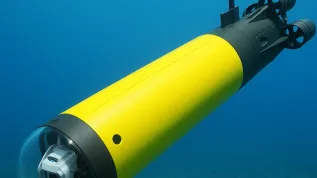
Researchers argue that obtaining a post-doctoral degree limits the independence of young researchers and forces them to engage in activities that are unnecessary from the point of view of scientific development. This effect is especially visible in the case of women.
Polish researchers analyzed the careers of 2.7 million scientists from 45 countries. They concluded that in countries where it is necessary to obtain a post-doctoral degree (called habilitation in Poland), the increase in scientific productivity is clearly weaker. The study was published on the OSF Preprints service.
The discussion about maintaining habilitation (from Latin: ability, skill) - a post-doctoral academic degree - has been going on in Poland for some time. Its critics believe, among other things, that it was once intended to be a test of skills, but it has since become primarily a promotion tool and habilitation procedures have degraded. They also point out that habilitation strengthens the hierarchical nature of relationships in scientific institutions, limits the independence of young researchers and forces them to engage in activities that are unnecessary from the point of view of scientific development, thereby reducing their research productivity.
Now Dr. Natalia Letki from the University of Warsaw, Dr. Piotr Sankowski, president of IDEAS NCBR, also affiliated with the University of Warsaw, Grzegorz Biały from IDEAS NCBR and Dawid Walentek from the University of Ghent analysed the activities of 2.7 million researchers working in 45 countries to determine the impact of obtaining habilitation on career and scientific development.
Post-doctoral degrees exist in about half of the countries described in the paper - including Poland, Germany, France and Italy. It does not exist, however, in the UK and the USA. The authors divided the studied cases based on this criterion and checked how it related to differences in the course of scientific careers.
The researchers have found that habilitation means involvement in long procedures, and scientists have limited independence before obtaining it. They have also proven that this applies especially to women, whose scientific development is clearly weaker than that of researchers in countries without habilitation.
The analysis results indicate that although the gender gap among people involved in science is smaller in countries with habilitation than in the remaining countries, scientific development measured by the number and quality of publications is weaker. However, this effect applies almost exclusively to women. While among men, working in a system requiring a habilitation does not have a significant impact on scientific productivity, in the case of female researchers, it is clear that the system requiring a habilitation significantly slows down their development compared to female colleagues from countries where there is no habilitation. In the 15th year of a scientific career, the productivity of women in countries with habilitation is 2.6 times higher than in the 2nd year, while, for example, in the USA or Great Britain, it is 4.6 times higher. Men in systems with habilitation are 4.5 times more productive in the 15th year of scientific work than just after starting it.
'In systems with habilitation, after 15 years of their careers, women record a 30 percent lower increase in scientific productivity than women in systems without habilitation and 87 percent lower than men in systems with habilitation,’ says Dr. Letki. She adds that 'existing research documents many factors that do not favour women's scientific development, ranging from their parental and caring responsibilities, through assigning them functions and tasks subservient to male researchers, to systematic discrimination at the stage of assessing their achievements.’
As a result, women publish less and in less prestigious publishing houses than men, their papers are cited less frequently and more women than men leave science, which remains highly masculinised.
'In our work, we argue that the hierarchy and control of research careers in systems based on habilitation enhance the negative effect of these factors on women's scientific development, which makes the gender gap even wider,’ Dr. Letki says.
'Our study also shows that the gender gap in the field of technical sciences is one of the largest - it is as much as 58 percent. While building an artificial intelligence research centre in Poland and employing leading scientists at various stages of their scientific careers, we can see it with the naked eye. We have a huge overrepresentation of male researchers, so it is worth considering how we can make it easier for women to pursue scientific careers by introducing system solutions,’ says Dr. Sankowski, president of IDEAS NCBR.
Polish researchers used Microsoft Academic Graph and SCImago tools to obtain information on the number of publications and their impact, i.e. citations in other scientific papers. For the study, they selected scientists from countries with HDI (Human Development Index) above 0.8, i.e. with a comparable socio-economic status, and those who published in the years 1960-2021. In total, they tracked the scientific careers of 2,704,688 people.
'We would like our study to start a discussion on the need to introduce certain regulatory changes in the context of scientific systems. This type of extensive quantitative analyses facilitate the assessment of planned and unplanned consequences of system changes, says Sankowski, co-author of the study.
'In systems without habilitation, the difference in the productivity of women and men in science and technical sciences in the 15th year of their career is only 11 percent. In systems with habilitation it is 58 percent. Therefore, the difference in the size of the gender gap in productivity in technical sciences is more than fivefold, and in natural sciences - more than double,’ says Dr. Letki. (PAP)
PAP - Science in Poland
abu/ zan/ kap/
tr. RL













